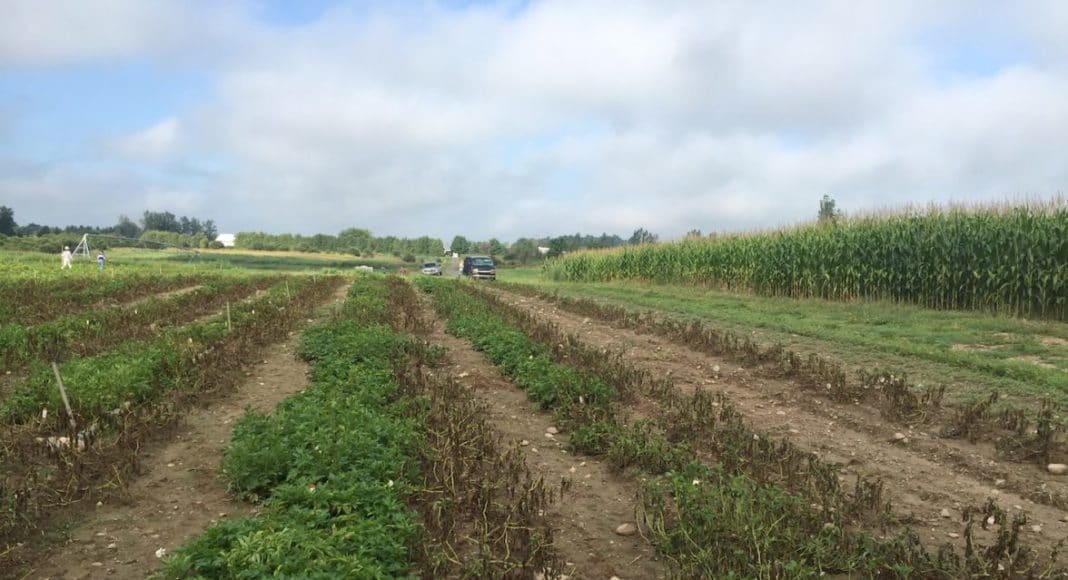Feb. 28, 2017, Boise, Idaho — The J.R. Simplot Company announced today that the United States Environmental Protection Agency (EPA) and Food and Drug Administration (FDA) have completed their independent reviews and granted registrations and clearances for three varieties of Simplot’s second generation of Innate potatoes. The three varieties have already been deregulated by the United States Department of Agriculture (USDA) so these new agency registrations and clearances permit these proprietary bioengineered potatoes to be grown and sold in the United States.
The Innate Gen. 2 Russet Burbank, Ranger Russet and Atlantic varieties contain significant benefits to growers, processors and consumers with reduced bruising and black spots; reduction of the natural chemical compound asparagine; protection from late blight pathogens; and enhanced cold storage capability. These benefits were achieved through biotechnology by adapting genes only from wild and cultivated potatoes.
Late blight, a major contributing factor for the historic Irish potato famine, is caused by a fungus-like pathogen and still has the potential to devastate world potato crops. Innate Gen. 2 potatoes express a gene from a South American wild potato species that provides natural protection against certain strains of the pathogen.
Simplot estimates that the late blight protection trait can result in up to a 50 per cent reduction in fungicide applications annually to control late blight. Reduced asparagine means that accumulation levels of acrylamide can be reduced by up to 90 per cent when these potatoes are cooked at high temperatures. In addition, lowered reducing sugars enable cold storage at 38 F (3 C) for more than six months without the build-up of sugars, which maintains a quality that cannot be achieved until now.
Based on academic estimates from the American Journal of Potato Research, it is estimated that late blight disease contributes to five per cent in-field yield loss and 1.7 per cent storage loss each year in the U.S. which is the equivalent of 71,000 acres or 1.4 billion wasted lbs. In addition, late blight protection similar to Innate could result in the reduction of 1.2 million acre applications of fungicides overall.
“The Innate Gen. 2 potato is the most significant advancement to date in fighting late blight disease in North America,” said David Douches, Ph.D., professor and director of Potato Breeding and Genetics Program at Michigan State University. “Since late blight disease impacts both organic and conventional potato crops on a commercial scale and must be treated with fungicides, Innate provides the opportunity for a significant reduction.”
“We’re pleased to provide potatoes that address some of the biggest issues in the potato industry,” said Haven Baker, vice president and general manager of Simplot Plant Sciences. “Farmers and consumers have told us that they want to reduce chemicals, waste and pesticides whenever possible and the Innate program makes progress towards these goals.”











